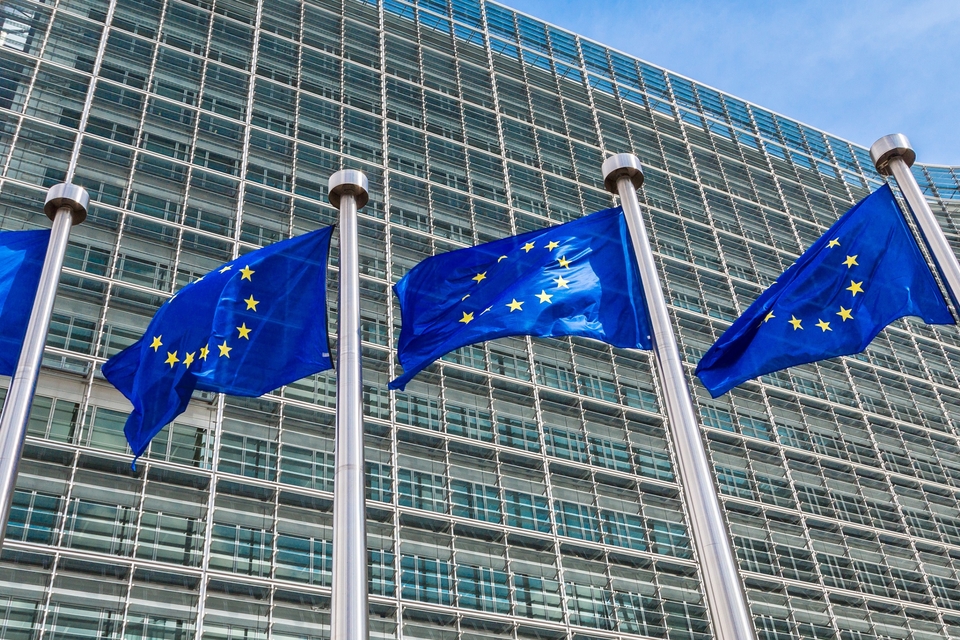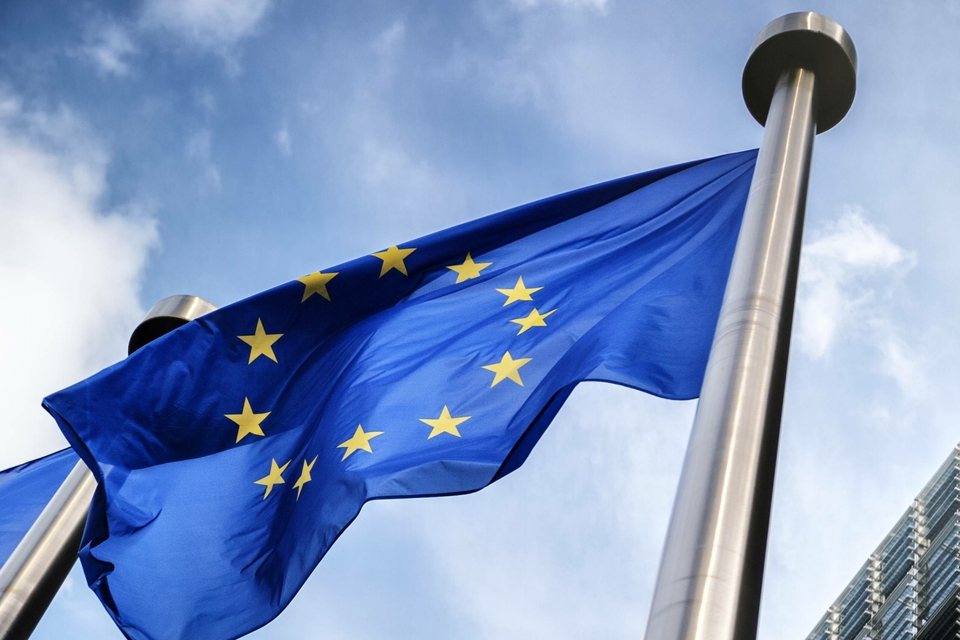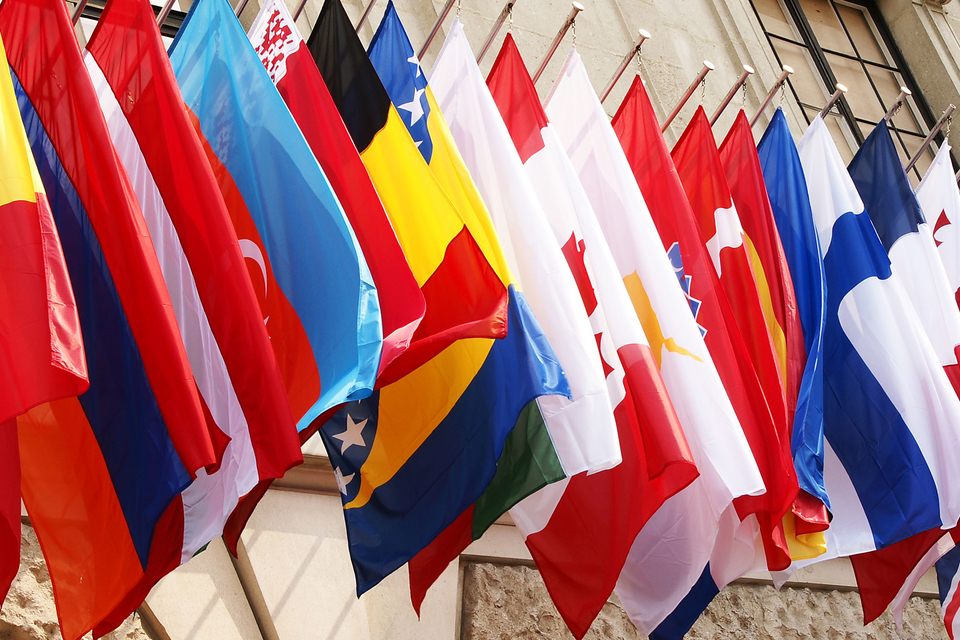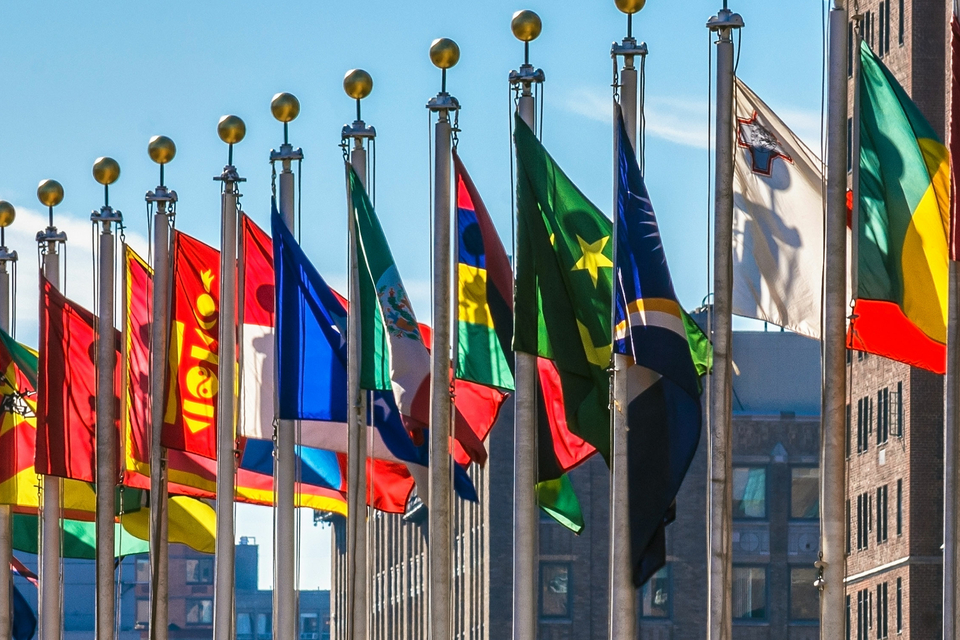African Union
The African Union's Continental AI Strategy sets the stage for a unified approach to AI governance across the continent.

Artificial intelligence (AI) has made enormous strides in recent years and has increasingly moved into the public consciousness.
Subscribe
We encourage you to subscribe to receive AI-related updates.
Explore Trendscape Our take on the interconnected global trends that are shaping the business climate for our clients.
Increases in computational power, coupled with advances in machine learning, have fueled the rapid rise of AI. This has brought enormous opportunities, as new AI applications have given rise to new ways of doing business. It has also brought potential risks, from unintended impacts on individuals (e.g., AI errors harming an individual's credit score or public reputation) to the risk of misuse of AI by malicious third parties (e.g., by manipulating AI systems to produce inaccurate or misleading output, or by using AI to create deepfakes).
Governments and regulatory bodies around the world have had to act quickly to try to ensure that their regulatory frameworks do not become obsolete. In addition, international organizations such as the G7, the UN, the Council of Europe and the OECD have responded to this technological shift by issuing their own AI frameworks. But they are all scrambling to stay abreast of technological developments, and already there are signs that emerging efforts to regulate AI will struggle to keep pace. In an effort to introduce some degree of international consensus, the UK government organized the first global AI Safety Summit in November 2023, with the aim of encouraging the safe and responsible development of AI around the world. The EU is also implementing the first comprehensive horizontal legal framework for the regulation of AI systems across EU Member States (the EU AI Act is addressed in more detail here: AI watch: Global regulatory tracker - European Union, and you can read our EU AI Act Handbook here).
Most jurisdictions have sought to strike a balance between encouraging AI innovation and investment, while at the same time attempting to create rules to protect against possible harms. However, jurisdictions around the world have taken substantially different approaches to achieving these goals, which has in turn increased the risk that businesses face from a fragmented and inconsistent AI regulatory environment. Nevertheless, certain trends are becoming clearer at this stage:
Businesses in almost all sectors need to keep a close eye on these developments to ensure that they are aware of the AI regulations and forthcoming trends, in order to identify new opportunities and new potential business risks. But even at this early stage, the inconsistent approaches each jurisdiction has taken to the core questions of how to regulate AI is clear. As a result, it appears that international businesses may face substantially different AI regulatory compliance challenges in different parts of the world. To that end, this AI Tracker is designed to provide businesses with an understanding of the state of play of AI regulations in the core markets in which they operate. It provides analysis of the approach that each jurisdiction has taken to AI regulation and provides helpful commentary on the likely direction of travel.
Because global AI regulations remain in a constant state of flux, this AI Tracker will develop over time, adding updates and new jurisdictions when appropriate. Stay tuned, as we continue to provide insights to help businesses navigate these ever-evolving issues.
The African Union's Continental AI Strategy sets the stage for a unified approach to AI governance across the continent.

Voluntary AI Ethics Principles guide responsible AI development in Australia, with potential reforms under consideration.

The enactment of Brazil's proposed AI Regulation remains uncertain with compliance requirements pending review.

AIDA expected to regulate AI at the federal level in Canada but provincial legislatures have yet to be introduced.

The Interim AI Measures is China's first specific, administrative regulation on the management of generative AI services.

Despite congressional activity on AI in Colombia, regulation remains unclear and uncertain.

The Council of Europe is developing a new Convention on AI to safeguard human rights, democracy, and the rule of law in the digital space covering governance, accountability and risk assessment.

The successful implementation of the EU AI Act into national law is the primary focus for the Czech Republic, with its National AI Strategy being the main policy document.

The EU introduces the pioneering EU AI Act, aiming to become a global hub for human-centric, trustworthy AI.

France actively participates in international efforts and proposes sector-specific laws.

The G7's AI regulations mandate Member States' compliance with international human rights law and relevant international frameworks.

Germany evaluates AI-specific legislation needs and actively engages in international initiatives.

Hong Kong lacks comprehensive AI legislative framework but is developing sector-specific guidelines and regulations, and investing in AI.

National frameworks inform India’s approach to AI regulation, with sector-specific initiatives in finance and health sectors.

Israel promotes responsible AI innovation through policy and sector-specific guidelines to address core issues and ethical principles.


Japan adopts a soft law approach to AI governance but lawmakers advance proposal for a hard law approach for certain harms.

Kenya's National AI Strategy and Code of Practice expected to set foundation of AI regulation once finalized.

Nigeria's draft National AI Policy underway and will pave the way for a comprehensive national AI strategy.

Position paper informs Norwegian approach to AI, with sector-specific legislative amendments to regulate developments in AI.

The OECD's AI recommendations encourage Member States to uphold principles of trustworthy AI.

Saudi Arabia is yet to enact AI Regulations, relying on guidelines to establish practice standards and general principles.

Singapore's AI frameworks guide AI ethical and governance principles, with existing sector-specific regulations addressing AI risks.

South Africa is yet to announce any AI regulation proposals but is in the process of obtaining inputs for a draft National AI plan.

South Korea's AI Act has been promulgated as the fundamental body of law governing AI.

Spain creates Europe's first AI supervisory agency and actively participates in EU AI Act negotiations.

Switzerland's National AI Strategy sets out guidelines for the use of AI, and aims to finalize an AI regulatory proposal in 2025.

Draft laws and guidelines are under consideration in Taiwan, with sector-specific initiatives already in place.

Turkey has published multiple guidelines on the use of AI in various sectors, with a bill for AI regulation now in the legislative process.

Mainland UAE has published an array of decrees and guidelines regarding regulation of AI, while the ADGM and DIFC free zones each rely on amendments to existing data protection laws to regulate AI.

The UK prioritizes a flexible framework over comprehensive regulation and emphasizes sector-specific laws.

The UN's AI resolutions encourage Member States to adopt national rules to establish safe, secure and trustworthy AI systems and create forums to advance global cooperation, scientific understanding, and share best practices.

The US relies on existing federal laws and guidelines to regulate AI but aims to introduce AI legislation and a federal regulation authority.


The African Union's Continental AI Strategy sets the stage for a unified approach to AI governance across the continent.
There are no comprehensive, binding laws or regulations specifically governing AI across the entire African Union (AU). However, the AU has shown interest in AI governance, recognizing its potential to drive socio-economic transformation. The Continental Artificial Intelligence Strategy1 ("Continental AI Strategy") was endorsed by the AU Executive Council in July 2024 and reflects this vision. The Continental AI Strategy promotes ethical, responsible, and equitable AI practices across the continent, aligning with Africa’s Agenda 2063 goals to accelerate social and economic transformation.
The Continental AI Strategy includes a phased implementation plan from 2025 to 2030, beginning with preparatory activities in 2024. Phase I (2025-2026) is focused on creating governance frameworks, national AI strategies, resource mobilization, and capacity building. Phase II, starting in 2028, aims to implement core projects informed by a review in 2027. The Continental AI Strategy focuses on five areas: harnessing AI’s benefits, building capabilities, minimizing risks, fostering cooperation, and stimulating investment.
Resource mobilization involves investing in and collaborating with partners to finance and support AI initiatives, with a focus on developing broadband connectivity, enhancing data infrastructure, and establishing high-performance computing systems, as outlined in the Continental AI Strategy.
Monitoring and evaluation (M&E) is due to be coordinated with Member States, involving the development of an African AI readiness index and a dedicated M&E portal.
A midterm review in 2027 aims to refine indicators and improve implementation.
The AU aims to also establish a web platform to track progress in expanding AI benefits, mitigating risks, and building capacities in skills, research, and innovation.
As of now, several African countries have adopted AI strategies, each with unique focuses and stages of implementation:
As described in the Continental AI Strategy, AI refers to "computer systems that can simulate the processes of natural intelligence exhibited by humans where machines use technologies that enable them to learn and adapt, sense and interact, predict and recommend reason and plan, optimize procedures and parameters, operate autonomously, be creative and extract knowledge from large amounts of data to make decisions and recommendations for the purpose of achieving a set of objectives identified by humans." (p.14)
The AU is made up of 55 Member States which represent all the countries on the African continent.
Member States are expected to domesticate the Continental AI Strategy by developing and implementing their own national AI strategies, tailored to their specific contexts and capabilities. The Strategy emphasizes the need for Member States to build capacity, establish governance frameworks, and align with the broader continental objectives set by the AU. Key enablers for this include increasing mobile penetration, improving digital infrastructure, and fostering public-private partnerships. However, inhibitors such as limited AI talent, inadequate data availability, and infrastructure gaps must be addressed to ensure successful implementation. Strengthening AI readiness and aligning national priorities with the broader Continental AI Strategy will be crucial for overcoming these challenges.
Entities engaged in partnerships, collaborations, or joint ventures with AU Member States or their institutions, are also required to adhere to local AI regulations. Additionally, foreign entities providing AI-based products or services to AU entities must meet the legal, ethical, and safety standards set by national and continental guidelines. Those processing or managing data originating from AU Member States must comply with data protection laws and AI regulations to ensure data security and privacy. Entities involved in funding or providing technical assistance for AI projects within AU Member States need to align their operations with both continental and national AI regulations to support the AU's strategic goals, as outlined in the Continental AI Strategy.
According to the Continental AI Strategy, future AI regulations will aim to:
Key sectors regulated will include intellectual property, electronic communications and transactions, whistleblowing and protected disclosure, access to information, personal data protection, cybersecurity, consumer protection, and antitrust and competition.
Additionally, the regulations will focus on inclusion and empowerment, particularly for underrepresented groups such as women, girls, people with disabilities, youth, children, and rural populations.
Specific sectoral regulations will also address labor protections for gig and platform workers, standards for public procurement of AI systems, regulatory approval for AI as medical devices in healthcare, and alignment with international standards for social media and content generation.
Overall, the AU's AI regulations will aim to ensure that AI's benefits are equitably distributed and its risks effectively mitigated across various sectors, fostering inclusive, fair, and sustainable AI ecosystems.
The Continental AI Strategy delineates specific compliance roles for AI developers, deployers, and users to ensure responsible AI development, deployment, and use, which emphasizes a multi-tiered governance approach. This includes establishing regulatory sandboxes to promote innovation and independent oversight institutions to ensure transparency and accountability throughout the AI lifecycle.
AI developers are obligated to adhere to ethical standards, mitigate risks throughout the AI lifecycle, ensure transparency and accountability, and comply with data protection laws.
Deployers must comply with sector-specific regulations, conduct impact assessments, establish monitoring frameworks, and report any incidents or violations.
AI users are required to be informed about the AI systems they interact with, ensure data security, and adhere to usage policies.
Additionally, the Continental AI Strategy discusses independent oversight through institutions that enforce compliance and provide redress, stakeholder engagement in AI strategy design, and continuous research to assess new risks and develop policy innovations. These roles and obligations aim to foster a responsible, transparent, and accountable AI ecosystem across the continent.
The Continental AI Strategy aims to address several core issues, including the risks to the rights and freedoms of individuals, the economy, and national security. The Strategy emphasizes the importance of ethical principles, democratic values, and human rights to safeguard against potential harms posed by AI technologies.
Additionally, the Continental AI Strategy seeks to mitigate economic risks by promoting fair competition, consumer protection, and responsible innovation.
Overall, the Continental AI Strategy strives to create a balanced and secure AI ecosystem that benefits society while minimizing risks.
The Continental AI Strategy categorizes AI according to different levels of risk and outlines corresponding obligations for each level.
The regulations identify key risk dimensions, including environmental impact, social inequalities, biases, privacy concerns, gender disparities, job displacement, and threats to African values such as societal cohesion, democracy, and cultural heritage.
High-risk AI systems, particularly those with significant environmental footprints or those prone to perpetuating biases and discrimination, are subject to stringent oversight and impact assessments. Obligations for such systems include rigorous ethical reviews, transparency mandates, robust data protection measures, and mechanisms to mitigate biases.
Medium-risk AI applications, such as those impacting job markets or digital access, require continuous monitoring, public consultations, and adaptive policy frameworks to address emerging issues.
Lower-risk AI uses must still comply with general principles of transparency, accountability, and ethical standards, ensuring they do not inadvertently harm individuals or communities.
By categorizing AI systems based on risk levels, the AU’s regulations will aim to balance innovation with the protection of rights, economic stability, and cultural integrity.
The Continental AI Strategy introduces key compliance requirements to ensure responsible AI development and deployment.
These include mandatory transparency in AI operations and public disclosure, robust cybersecurity and personal data protection measures, and ensuring AI explainability, where decisions can be understood and interpreted by humans.
Human control mechanisms must be in place to review and override AI decisions when necessary.
The regulations also require bias mitigation strategies, adherence to ethical standards, and accountability frameworks to align AI with human rights and social justice.
Conducting impact assessments and engaging a wide range of stakeholders, including public consultations, are essential to address potential risks and ensure inclusivity in AI strategies.
These requirements aim to foster a transparent, secure, fair, and accountable AI ecosystem across the continent.
The enforcement of AI Regulations will likely be overseen by a combination of national and regional regulatory bodies, depending on the jurisdiction and sector, ensuring effective oversight and compliance. National AI Councils will play a critical role in formulating and implementing AI policies, while regional bodies will promote harmonization across Member States. Independent oversight institutions will ensure transparency and provide mechanisms for redress in case of violations. Additionally, the establishment of regulatory sandboxes will enable controlled testing of innovative AI solutions, fostering responsible innovation. Collaboration between sector-specific regulators, such as data protection authorities, cybersecurity agencies, and consumer protection bodies, will be essential to address the multi-faceted nature of AI risks and opportunities. These entities will work in coordination with the African Union’s overarching principles to align national efforts with the broader goals of the Continental AI Strategy.
Key regulators include National Data Protection Authorities for data protection and privacy compliance, sector-specific regulatory agencies for fields such as healthcare, finance, and telecommunications, and national cybersecurity authorities to protect AI systems from cyber threats.
Consumer protection agencies ensure AI technologies in consumer products comply with relevant laws, while National AI Councils or Commissions oversee AI development and regulation. Independent oversight institutions may also be established for independent review and enforcement.
Additionally, the Continental AI Strategy notes that governments should encourage access to diverse data sets through regulatory sandboxes that promote responsible AI innovation. These sandboxes facilitate legislative amendments allowing trials within limited geographical areas or time periods and include measures for close monitoring when supervision is required.
At the regional level, the African Union itself plays a coordinating role to ensure that Member States adhere to the overarching principles and standards set out in the AU's AI regulations.
The Continental AI Strategy does not specify detailed enforcement powers and penalties.
The AU aims to support Member States in establishing independent institutions to oversee AI use, enforce compliance with emerging standards, and provide access to redress and remedy where violations occur.
1 African Union Continental Artificial Intelligence Strategy available here. 2 Algeria's AI Research and Innovation Strategy available here.
3 Benin's 2023 AI and Big Data Strategy available here.
4 Egypt's National AI Strategy available here.
5 Mauritius AI strategy available here.
6 Rwanda's AI policy available here.
7 Senegal’s AI strategy available here.
Sulaiman Iqbal (Trainee Solicitor, White & Case, London) contributed to this publication.
White & Case means the international legal practice comprising White & Case LLP, a New York State registered limited liability partnership, White & Case LLP, a limited liability partnership incorporated under English law and all other affiliated partnerships, companies and entities.
This article is prepared for the general information of interested persons. It is not, and does not attempt to be, comprehensive in nature. Due to the general nature of its content, it should not be regarded as legal advice.
© 2024 White & Case LLP